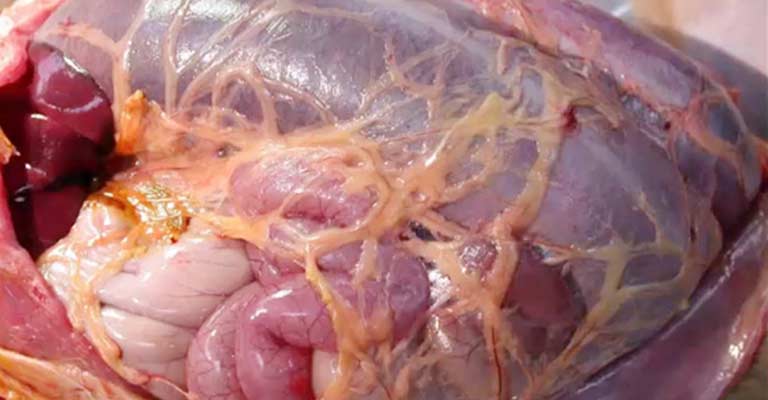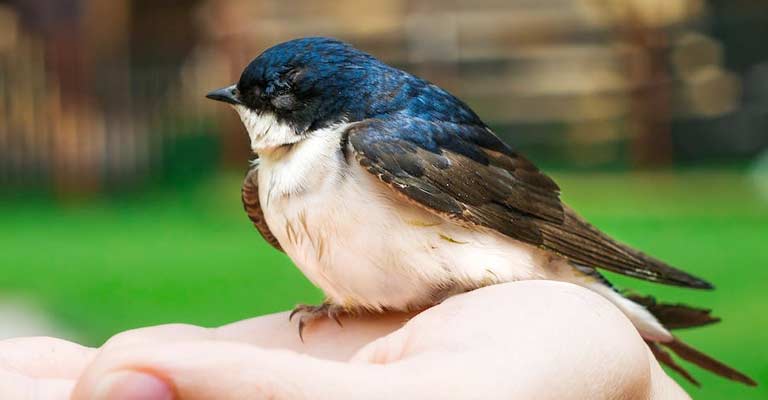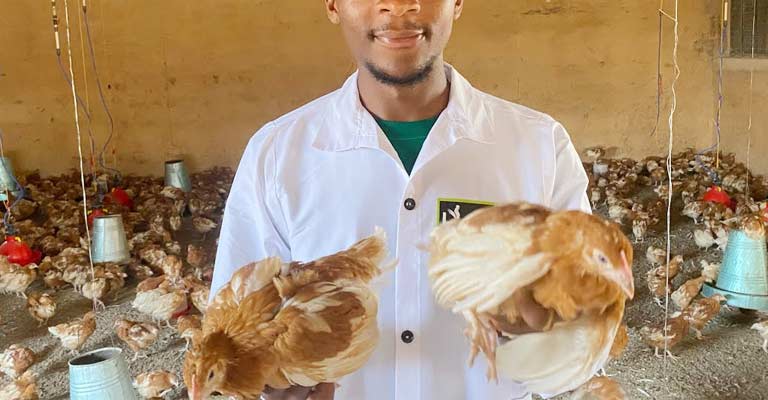Viral digestive tract infections in birds pose significant challenges to their health and well-being. Recognizing the signs, understanding the causes, and implementing effective treatments are paramount for bird owners and caregivers.
These infections can affect various species of birds, emphasizing the importance of awareness and proactive measures. From changes in droppings to alterations in behavior, vigilance is key in identifying potential infections early on.
In this complex interplay of health and environment, a holistic approach to prevention and treatment is crucial.
This guide explores the common causes, signs, and treatments associated with viral digestive tract infections in birds, aiming to empower bird owners with knowledge for the well-being of their feathered companions.

Viral Digestive Tract Infection In Birds
Birds, like any other living beings, are susceptible to various health challenges, including digestive tract infections. Recognizing the signs and understanding the different types of viral infections is crucial for timely intervention.
Here are seven types of viral digestive tract infections in birds
Avian Gastritis Virus (AGV)
AGV affects the stomach lining, leading to inflammation and discomfort. Birds infected may exhibit regurgitation, lethargy, and a decrease in food intake. Proper hygiene, nutritional support, and anti-inflammatory medications are key in managing AGV.
Psittacine Beak and Feather Disease (PBFD)
PBFD primarily targets parrots, causing beak and feather abnormalities. Digestive issues may arise due to malnutrition. Strict quarantine measures, supportive care, and maintaining optimal nutrition are essential for managing PBFD.
Avian Influenza (Bird Flu)
Bird flu viruses can cause digestive tract infections in birds, leading to symptoms like diarrhea and vomiting. Strict biosecurity measures, vaccination, and prompt veterinary intervention are crucial to prevent its spread.
Pacheco’s Disease
This herpes virus affects parrots, leading to liver and digestive tract issues. Infected birds may exhibit greenish diarrhea and lethargy. Quarantine, antiviral medications, and supportive care are key in managing Pacheco’s Disease.
Polyomavirus Infection
Polyomavirus primarily affects young birds, causing gastrointestinal symptoms like vomiting and diarrhea. Strict hygiene practices, quarantine for new birds, and supportive care can help control the spread of the virus.
Astrovirus Infection
Astroviruses can infect the digestive tract, causing diarrhea and vomiting in birds. Good sanitation and hygiene practices and providing a stress-free environment are vital for preventing and managing astrovirus infections.
Adenovirus Infection
Adenoviruses can impact the gastrointestinal system, leading to symptoms such as vomiting and weight loss. Supportive care, maintaining optimal environmental conditions, and addressing stress factors are crucial for managing adenovirus infections in birds.
How Do I Know If My Bird Has Viral Digestive Tract Infection?

Recognizing the signs of a viral digestive tract infection in your bird is crucial for early intervention and effective treatment. Birds can exhibit a range of symptoms when afflicted with such infections, impacting their overall health and well-being.
Here are seven key signs to watch for:
Changes in Fecal Color and Consistency
Pay attention to alterations in your bird’s droppings. Diarrhea, unusual colors, or changes in consistency can indicate a digestive tract issue. Any persistent deviation from normal droppings should be promptly addressed with veterinary care.
Loss of Appetite and Weight Loss
A decrease in appetite leading to weight loss is a common sign of digestive tract infections. If your bird shows a sudden disinterest in food or demonstrates a significant drop in weight, it may be indicative of an underlying health issue requiring attention.
Vomiting or Regurgitation
Unexplained vomiting or regurgitation could signal a digestive problem. Birds should not regularly regurgitate, and any persistent instances should be investigated by a veterinarian to rule out viral infections affecting the digestive tract.
Lethargy and Weakness
Viral digestive tract infections can sap your bird’s energy, resulting in lethargy and weakness. If your bird appears unusually listless, with a reluctance to move or engage in normal activities, it may be a red flag for an underlying health concern.
Changes in Behavior or Vocalization
Observe for alterations in your bird’s behavior or vocalizations. Unusual or distressed sounds, along with changes in social interactions, may indicate discomfort or illness. Behavioral shifts can be subtle but are important signals of potential health issues.
Respiratory Distress
Some viral infections can affect the respiratory system, leading to symptoms such as coughing, sneezing, or labored breathing. If your bird displays any respiratory distress, seek prompt veterinary attention, as this can be a critical sign of illness.
Visible Swelling or Abnormalities
Check for any visible swelling or abnormalities around the beak, eyes, or abdomen. Viral infections may manifest with physical changes, and early detection of such signs can aid in timely intervention and management.
What Are The Common Causes Of Viral Digestive Tract Infections In Birds?

Viral digestive tract infections in birds can be attributed to various factors, and understanding the common causes is vital for prevention and effective management.
Here are some common causes that contribute to these infections:
Poor Hygiene Practices
Inadequate hygiene, such as dirty cages, contaminated water, or unclean food dishes, creates an environment conducive to viral infections. Birds exposed to unsanitary conditions are at a higher risk of contracting viruses affecting their digestive tract.
Contact with Infected Birds
Direct or indirect contact with infected birds can lead to the transmission of viruses. Whether through shared living spaces, toys, or grooming items, the close proximity of birds allows for the easy spread of viral infections, contributing to digestive tract issues.
Stress and Weakened Immune System
Stress weakens a bird’s immune system, making it more susceptible to viral infections. Changes in environment, inadequate nutrition, or sudden disruptions in routine can induce stress, compromising the bird’s ability to fend off pathogens that target the digestive tract.
Inadequate Nutrition
Poor nutrition can compromise a bird’s overall health, rendering it more susceptible to viral infections. A diet lacking essential nutrients weakens the immune system, making the bird more prone to digestive tract issues caused by viral pathogens.
Contaminated Food Sources
Viral infections can stem from contaminated food sources, such as spoiled or improperly stored food. Birds ingesting contaminated food may be exposed to viruses that impact their digestive system, leading to various health issues.
Environmental Factors
Harsh environmental conditions, including extreme temperatures or humidity levels, can stress birds and make them more susceptible to viral infections. Maintaining a stable and suitable environment is crucial in preventing digestive tract issues.
Lack of Quarantine Measures
Introducing new birds to an existing flock without proper quarantine measures can introduce viruses. Birds carrying infections may not show symptoms immediately, allowing the virus to spread within the flock and manifest as digestive tract issues over time.
What Are Some Treatments For Viral Digestive Tract Infections In Birds?

Effectively treating viral digestive tract infections in birds requires a comprehensive approach that considers the specific virus involved and the bird’s overall health.
Here are some common treatments used to address viral digestive tract infections in birds:
Antiviral Medications
Veterinary professionals may prescribe antiviral medications to directly target and inhibit the replication of the virus causing the digestive tract infection.
These medications aim to limit the spread of the virus within the bird’s system, allowing the immune system to regain control.
Supportive Care
Supportive care is essential in managing viral infections. This may include maintaining proper hydration through fluid therapy, providing easily digestible and nutritious foods, and creating a stress-free environment.
Supportive care helps the bird cope with the effects of the infection and aids in the recovery process.
Isolation and Quarantine
Isolating the infected bird is crucial to prevent the spread of the virus to other flock members. Quarantine measures, including separate living spaces, dedicated equipment, and strict hygiene protocols, help contain the infection and protect the overall health of the bird population.
Nutritional Support
Adequate nutrition is vital for a bird’s immune system to combat viral infections. Veterinarians may recommend specific diets or nutritional supplements to ensure the bird receives the necessary nutrients to support its recovery and strengthen its immune response.
Environmental Management
Modifying the bird’s environment is an important aspect of treatment. This may involve adjusting temperature and humidity levels, ensuring proper ventilation, and eliminating potential stressors. An optimized environment promotes the bird’s overall well-being and aids in its recovery.
Vaccination
In some cases, vaccines may be available to prevent specific viral infections in birds. While not a treatment for ongoing infections, vaccination is a valuable preventive measure that can be discussed with your veterinarian as part of a comprehensive health strategy for your bird.
Monitoring and Follow-Up Care
Regular monitoring of the bird’s progress is essential during and after treatment. Follow-up appointments with the veterinarian allow for adjustments to the treatment plan based on the bird’s response. Continued observation ensures that any potential complications are addressed promptly.
Successfully treating viral digestive tract infections in birds involves a combination of antiviral medications, supportive care, and environmental management.
Timely intervention, adherence to veterinary recommendations, and a holistic approach to the bird’s health contribute to a higher likelihood of recovery.
Bird owners should work closely with veterinarians to tailor treatment plans to the specific needs of their feathered companions.
FAQs
Are all birds equally susceptible to viral digestive tract infections?
While susceptibility varies, all birds can be affected. Factors like hygiene, stress levels, and overall health contribute to their vulnerability. Implementing preventive measures is crucial for minimizing the risk.
Can viral digestive tract infections in birds be treated at home?
Treatment requires professional veterinary care. Home remedies are not recommended, as accurate diagnosis and tailored treatment plans are essential for effective recovery.
How can I prevent viral digestive tract infections in my bird?
Maintain a clean environment, provide a balanced diet, and reduce stress. Regular veterinary check-ups and quarantine measures for new birds can help prevent infections.
Is vaccination available for viral digestive tract infections in birds?
While some vaccines exist, they may not cover all viruses. Consult your veterinarian to determine the suitability of vaccination based on your bird’s species and potential exposure.
What should I do if my bird shows signs of a viral digestive tract infection?
Seek immediate veterinary attention. Your veterinarian will conduct tests, provide a diagnosis, and prescribe appropriate treatments, which may include antiviral medications and supportive care.
Conclusion
Navigating the realm of viral digestive tract infections in birds requires diligence and a collaborative effort between bird owners and veterinary professionals.
The recognition of symptoms, understanding of causes, and timely interventions are instrumental in mitigating the impact of these infections.
As guardians of avian companions, it is our responsibility to create environments that prioritize hygiene, nutrition, and stress reduction.
Through proactive measures, including quarantine and proper medical care, we can work towards minimizing the incidence and severity of viral digestive tract infections, ensuring the longevity and vitality of our cherished feathered friends.